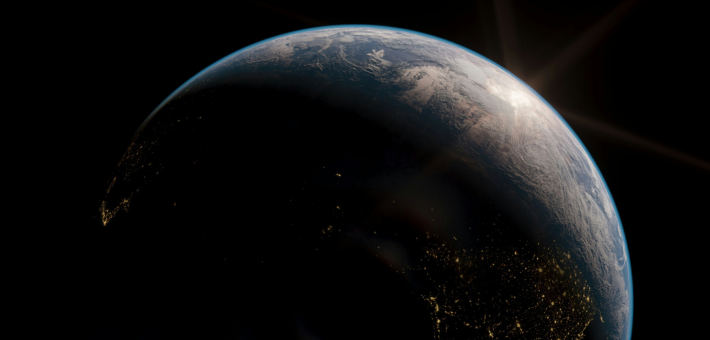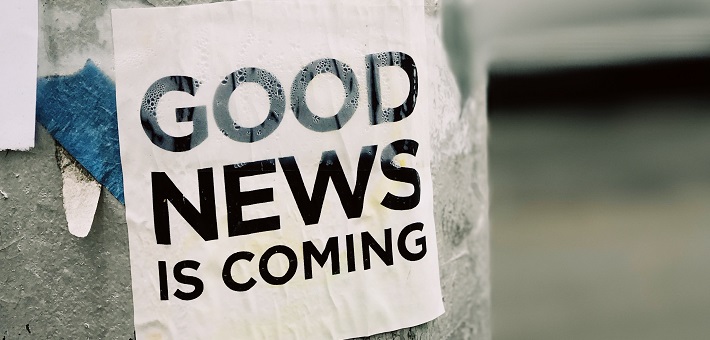Commentary on Isaiah 62:6-12
Someone once said that life’s storms force us into one of three positions when pondering a response: We are either entering a storm, in the midst of one, or coming out of one. If we are honest, none of us welcomes storms. They toss us back and forth, leaving us unsteady in turbulent waters, grasping for an anchoring lifeline. Doubt and fear whisper that we will be overtaken as we sink into despair and desperation. In those moments, even our faith seems fragile. We question God’s ability—or willingness—to rescue us. Like the psalmist, we ask, “Why have you forgotten me?” (Psalm 42:9). This is the conundrum the writer of Isaiah 62 seeks to address.
The people had heard the assurances of comfort and security throughout Isaiah 40–55, where God’s presence and commitment to a struggling community were on full display. “Do not fear, for I have redeemed you; I have called you by name; you are mine. … Do not remember the former things or consider the things of old. I am about to do a new thing” (Isaiah 43:1, 18, 19a).
However, instead of a vibrant, thriving community, the exiles had returned to a devastated city, a temple in ruins, and a people too traumatized to invest in its restoration. Here, we find a community experiencing a crisis of faith, one burdened by memories of suffering and humiliation, a community yearning to know whether God’s promises were still sure. The writer responds with a resounding “Yes! God is a promise-keeper!”
In Isaiah 62:6–7, the community is encouraged to hold fast to the promises of God, even if it goes against their present reality—they are to hold in tension the now and the not yet. The stationing of sentinels on Jerusalem’s walls is a powerful image of the need for persistent hope and prayer when faced with a crisis of faith. During their vigil, these sentinels are “never silent”; their voices are heard “all day and all night.” They stand watch not only over a city but also to remind God of God’s promises, to make sure God takes “no rest” until “God reestablishes Jerusalem as a city renowned throughout the earth” (62:6–7).
These verses make it plain that a holy boldness must accompany our prayers, an insistence like Jacob wrestling with the angel of God, refusing to let go until he received a blessing (Genesis 32:36), or the widow whose persistence in seeking justice from an unjust judge resulted in the judge granting her petition (Luke 18:1–8).
The demand that God be God is not an act of insubordination but an act of faith. Faith that the God of this world can and does move mountains, that stumbling blocks can become stepping stones, that weeping only lasts for a night, and joy does come in the morning. It is an act of courageous faith that believes against all odds that God’s promises will manifest in our lives in God’s time.
The writer confirms, “The LORD has sworn by his right hand and by his mighty arm: I will not again give your grain to be food for your enemies, and foreigners shall not drink the wine for which you have labored, but those who harvest it shall eat it and praise the LORD, and those who gather it shall drink it in my holy courts” (62:8–9). This is what the Lord promises: restoration to a depleted people, a people who have been waiting for change to come.
This confidence in God’s faithfulness is not passive. It requires our active participation as we become the sentinels who await the manifestation of God’s promises. “Go through, go through the gates; prepare the way for the people; build up, build up the highway; clear it of stones; lift up an ensign over the peoples” (62:10). The barriers that God wants to remove require that we participate in our deliverance. While we are called to persistently wait for what only God can accomplish, we are also called to actively remove the barriers and obstacles (for example, inequity, injustice) that hinder God’s Spirit from working in us and through us.
The people of Isaiah’s community are to prepare as they await a new reality yet unrealized: “The LORD has proclaimed to the end of the earth: Say to daughter Zion, Look, your savior comes; his reward is with him and his recompense before him.” (62:11). Centuries later, God’s salvific plan would unfold with the birth of Jesus Christ, the long-awaited and promised Messiah.
The saying goes that “the absence of evidence is not evidence of absence.” What cannot be seen does not mean that God is not with us. What we cannot comprehend does not impede the furtherance of God’s will. The human condition is to doubt, but God has been faithful in delivering on promise after promise.
This passage from Isaiah is read as we celebrate Christmas and pause to commemorate the birth of our Savior before returning to the routines of daily life, when trials and tribulations undoubtedly resurface. During these moments, God’s word reminds us that we are still God’s people, a holy people who, like the sentinels of old, continue to cry out not in despair but in hope. We raise our hallelujahs not in fear, but in faith, not in restless worrying but in worship. For the God who was faithful in times past is the same God yesterday, today, and forevermore.



December 25, 2025